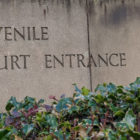
95% of public schools conduct active shooter drills. Are students safer?
|
Lockdown drills aimed at preparing students to protect themselves from school shooters do more to stir kids’ anxiety than their sense of protection, argues Dr. Annie Andrews, a South Carolina mother, pediatrician and firearm injury researcher. “Our children do not benefit from participating in these drills,” said former congressional candidate Andrews, also co-founder of Their Future. Our Vote. “Children deserve to feel safe in their schools.”
Among those countering that viewpoint is Alex Piquero, a University of Miami criminologist and former director of the federal Bureau of Justice Statistics. “We are, unfortunately, living in a world where we just have to plan for school shootings and hope that they never happen,” said Piquero, a former editor of the Journal of Quantitative Criminology.








